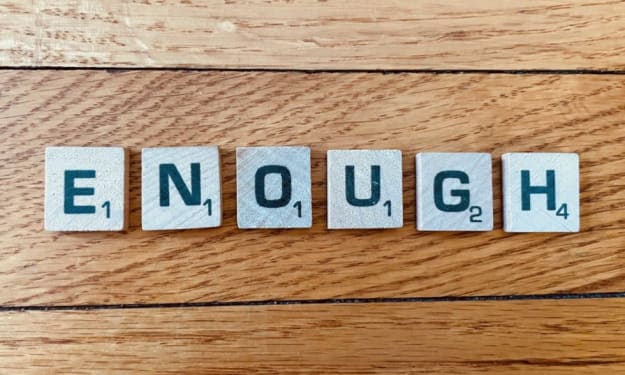February is a Great Month to (Re-)Start Your 2022 New Year’s Resolutions!
Here’s How to Make Them Stick

Did you make some great new year’s resolutions in January, but haven’t quite stuck to your original plan? Research shows that you have company: 80% of people have given up on their New Year’s resolutions by mid-February—many of them by January 19th! But February is a great month to start your resolutions anew. And with a few tips and tricks from political science, you’ll be able to make them stick!
How can political science help you stick to your New Year’s resolutions? It’s all about the power of institutions. Yes, institutions are buildings, like your local public library, or organizations, like your workplace. But institutions are also so much more. Institutions are huge super-structures—like your entire system of government or the way your economy functions. And institutions are also invisible micro-structures, like informal rules of interaction and norms of behavior. A crosswalk is an institution. Writing thank you notes is an institution. A tax credit for buying an electric car is an institution. Institutions are all around us!
These institutions, big and small, have built up over time, history, and culture to create ways of interaction in society. And political science tells us that these institutions—whether we realize it or not—create the daily “rules of the game” that influence, guide, and constrain the interests, choices, and behaviors of all of us. Think of institutions like a chess board and our choices and actions in life like the chess pieces: We can choose to act in different ways, but we are stuck within the boundaries of the chess board and the rules for each piece. In other words, all these visible and invisible structures in our society, from the biggest to the smallest, influence us to act in certain ways.
Here’s the good news: You can create your own institutions to help you achieve your goals! Now that you know the power of institutions, all you need to do is think about how you can create different structures, patterns, and incentives in your daily life to guide yourself to act in the way that you want.
So here are some ways to create institutions in your life to help you make your New Year’s resolutions stick!
Peer Pressure Works!
One of the most interesting findings from political science (and all the other “social science” fields that study human beings, like sociology and psychology) is how people change their behavior when other people know about it. For example, several intriguing studies show that simply telling people that whether they voted (not how they voted) is a public record makes them more likely to go out and vote! People care what other people think about them and their behavior. So tell people about your goal, either in person or on social media, and then keep them updated to hold yourself accountable.
Use Carrots and Sticks
In political science, the phrase “carrots and sticks” is an analogy for rewards and punishments. Think of a donkey pulling a cart—he moves faster when a carrot is dangled in front of him (the reward), and he also moves faster when a stick whacks him on the side (the punishment). What makes you more motivated? Each person is different: A mixture of carrots and sticks might work best for you, but some people thrive with just carrots or just sticks. Figure out what works best to motivate you and use this self-knowledge to your advantage!
An example of a carrot could be giving yourself a reward while accomplishing your goal, for example, by making the activity itself more pleasurable. If your goal is to walk more, find a podcast you really like and download some episodes that you listen to only when you are walking. (Or if you like to walk on a treadmill, save your TV episode watching for your daily walks!) If you want to eat more vegetables, have fun on Pinterest making a 30-day calendar board of veggies you want to cook this month (and this pre-planning helps with weekly grocery shopping too!).
Another example of a carrot might be giving yourself a small reward each day after you achieve your goal. These small but meaningful rewards could be a small piece of chocolate, a dollar toward a treat like sushi or cappuccino, or 10 minutes of playing a favorite game or watching a show. You could enjoy your reward immediately, or you might want to save up your rewards to “cash in” at the end of the week. Whatever works best for you!
A stick could take the opposite approach: Start the week with the full seven-day amount of the rewards you could earn, and on days you don’t complete your goal, take a reward away. You can do this method yourself, with a friend or community (in-person or online), or even with an app or company (like weight-loss bets). Punishments work because people are often more motivated by avoiding loss than by gaining a reward. But remember: You can also mix these strategies if that’s best for you!
Start Small
James Clear, author of Atomic Habits, argues that tiny changes make a big difference. In other words, you don’t have to start with an insanely high daily goal for your resolution. In fact, putting pressure on yourself to hit a challenging milestone right from the start may end up backfiring by overwhelming and discouraging you. Start small! Give yourself the space to get better over time. If your goal is to run 1,000 miles in a year, it might be tempting to divide this by 365 and run about 3 miles a day, every day. But it might be more sustainable to start small. Have faith in yourself that, as you get stronger, you can increase your daily goals week by week and month by month. Here’s where a chart can come in extra handy, to remind yourself that you are on the right track!
Make a Chart
Who doesn’t like stickers or check marks? It’s satisfying to mark off what you have accomplished. So print out a chart that will be a great physical reminder of your goals—and all the work you’ve put into them every day! You can find great templates on Pinterest or simply make your own with a table in a Word document. Celebrate your progress every day!
Be Kind to Yourself!
Remember that negative self-talk isn’t helpful. Be kind to yourself! Check out Kristen Neff’s self-compassion research, including her self-compassion guided meditations. Remind yourself that you are doing something positive for yourself, and every little bit counts!
Persist
Finally, don’t give up if you miss a day or two (or three…). Life isn’t about perfection. Life is about doing your best and knowing that each step makes a difference and brings you closer to your goal. It’s not easy to break old habits and instill new ones. So cheer yourself on! Start (again) any time this year—after all, it’s a New YEAR’S resolution for a reason!
Jocelyn Sage Mitchell is a political researcher, speaker, and author. Find out more about her work on her website, jocelynsagemitchell.com!
About the Creator
Jocelyn Sage Mitchell
Jocelyn Sage Mitchell is a politics researcher, speaker, author, and educator who holds a MA & PhD in Government from Georgetown University. In her career, she focuses on hearing the voices of individuals. https://jocelynsagemitchell.org/






Comments
Jocelyn Sage Mitchell is not accepting comments at the moment
Want to show your support? Send them a one-off tip.